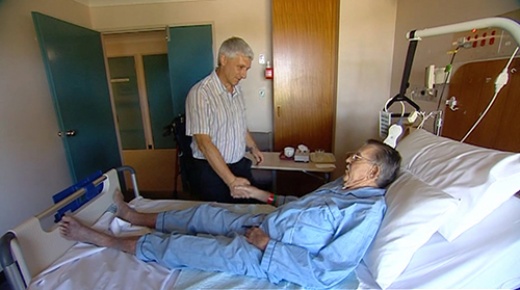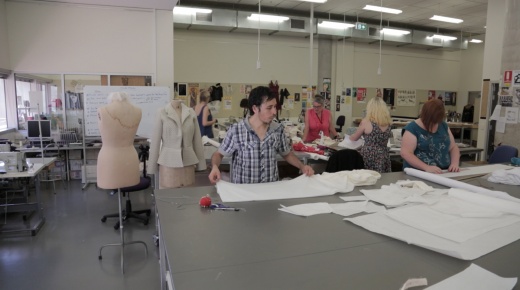The State of Queensland covers approximately 1,727,000 square kilometres and currently has a population of just under 4.7 million people. Queensland is Australia’s second largest state by area. By comparison, Queensland is 7 times larger than Great Britain and 2.5 times larger than Texas.
Queensland is a state blessed with some of Australia’s most beautiful natural attractions and is home to five of Australia’s eleven World Natural Heritage Areas, including the world acclaimed Great Barrier Reef and Fraser Island, the planet’s largest sand island.
Queensland’s climate varies from region to region. It ranges from sub-tropical to tropical along the coastline to hot and dry inland. There are also more temperate regions in the State’s south-east. Average minimum and maximum temperatures range from 15.7C - 25.3C in Brisbane, the State’s capital city to 18.3C -32.4C in Mt Isa in the State’s north-west. In Stanthorpe, in the south east of the State, the range is 8.8C – 21.6C while in Cairns in the tropical north it’s 22.7C – 31.8C.
Queensland’s health care and education and training infrastructure is extensive and includes a network of public and private hospitals and health centres right across the state. The Queensland government’s objective is to ensure all Queenslanders, including those in rural and remote areas, have access to world-class health care and education facilities.
Brisbane
Brisbane is Queensland’s capital and its largest city with a population of approximately 2.2 million people and, when combined with the Gold Coast and Sunshine Coast regions that border Brisbane to the south and north, this populations swells to around 3 million.
Brisbane is named after the river that crosses the city on its way to Moreton Bay and the Tasman Sea beyond. The city is very picturesque and a popular destination for tourists from the rest of Australia and overseas. Brisbane enjoys a humid sub-tropical climate with summers that warm to hot and humid and mild winters. The period November to March is the wettest of the year and frequent thunderstorms are common.
Brisbane has experienced a period of rapid growth in recent years, particularly during the resources boom. The city is a major financial services centre and its port, the Port of Brisbane, always busy with traffic from around Australia and the rest of the world.
The government’s ‘Smart State’ initiative has also seen the growth of the biotechnology and medical research industries in the city, centred around the state’s major universities.
Brisbane has an excellent public transportation network that includes bus and train services as well as city freeways and highways to accommodate the city’s cars. There are also domestic and international airports that have recently been up-graded to provide for the business and recreational travel needs of the city’s population and for the tens of thousands of tourists that visit each year.
Brisbane is a vibrant city that offers its citizens a world class quality of life.
Queensland Economy
Queensland’s moto is “Great State , Great opportunity” and is reflective of the exceptional rate of economic growth Queensland has experienced in recent years. For example, for the full year to June 2013, Queensland Gross State Product increased by 4.0% in real trend terms while, for the rest of Australia, the increase was 2.6%. Both household consumption and private investment were strongly positive in the 2012-13 financial year and net exports continued to grow. Average weekly earnings for this period stood at $1396.90. Queenslanders enjoy an enviable quality of life. The cost of living is relatively low for such as highly developed economy, housing is affordable, (the median house price in Brisbane was $430,000 as at August 2013), the public transport system efficient, both education and health services are world class, the climate very liveable and the beaches and natural environment the envy of the rest of the world.
Major industry sectors in Queensland by increases in numbers employed for 2012-13 include;
- Professional scientific and technical,
- Construction,
- Transport, postal and warehousing,
- Retail trade, and
- Other services.
Suffice to say the Queensland economy is in robust good health. In summary, Queensland offers all of its people, no matter where they live, opportunities to excel and an exciting and prosperous future.
Education
Queensland’s public school system is extensive and provides for the education of young Queenslanders no matter where they may be located in the state. Pre-schools, primary and secondary schools are accessible to all. There are also many private schools providing a high quality of education to their students. Queensland also has a network of colleges of Technical and Further Education to provide a wide range post secondary vocational and technical education options to build the state’s skill base.
Queensland’s tertiary education facilities are world class and include the University of Queensland, (UQ), Queensland University of Technology, (QUT) and Griffith University. These universities are among the highest ranked in Australia and enjoy a world-class reputation for their research programmes. Other Queensland based universities include James Cook University, the University of Southern Queensland, Central Queensland University, University of the Sunshine Coast, and the Australian Catholic University.
Regional Cities
Queensland has a number of major regional cities include Cairns, Mt Isa, Townsville, McKay, Rockhampton, Gladstone, Bundaberg and Toowoomba.
Each of these cities offers its population a wide range of services and a comfortable lifestyle. The infrastructure available includes schools, pre-schools, access to universities, public and private hospitals and health care centres. The range of recreational facilities is also comprehensive.











